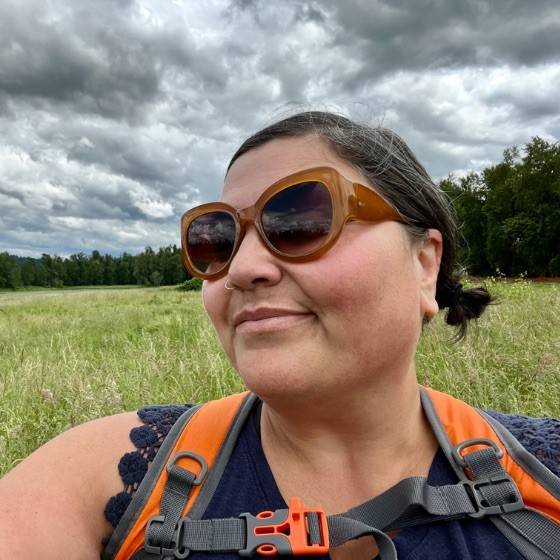
“Your network is your net worth.”
If you think that sounds like something you’d find plastered on a colleague’s coffee mug, you’re right. But that doesn’t mean there isn’t truth behind it. Just as we all could use a reminder to live, laugh, and love from time to time, we also shouldn’t overlook the importance of networking for small businesses.
That said, there’s no mug on the market that explains how to go about making new professional connections (none that we could find, at least). That’s an issue for growing businesses, especially when you consider how intimidating most networking events can be. What should someone new to networking know in order to succeed—or at the very least, not feel mortified?
As luck would have it, two of our Rubys just attended their first networking event—and came back with plenty of insights. We spoke to Katie Meier-Raetz and Sarah Allen for their post-event perspectives on what went well, what they wish they knew going in, and what they’d do differently in the future.
Below, they share their tips and takeaways in order to help small business owners navigate the world of networking on their own. Let’s jump in!
What was on your mind before the event?

Katie Meier-Raetz, lead marketing response specialist: For me, the first thing that I thought was, what am I going to wear? I’m assuming you want to look professional. You want to look friendly. You want to represent your company the best that you can. How does that all come across in the way that you dress? And then, the second thought was, what the heck do I talk about?

Sarah Allen, partner account manager: I actually had a specific purpose going in that helped me stay focused. Katie, you were just like: “I’m going, and I’m networking,” whereas I feel like it was a little easier for me because I was looking for partnership opportunities. I think having a strategy like that can definitely make things less intimidating, depending on what kind of event you’re going to.
How did you prepare?
Sarah: Part of the event was a food drive, and I didn’t want to show up empty-handed. So, I stopped and picked up some canned food and made sure to go over all of the talking points I had in my head just in case it came up in conversation. Oh, and I double-checked that I had my business cards with me! There’s a lot of discussion about whether or not business cards are still relevant. Yes, they are. You need them.
Katie: Absolutely. And because we’ve been virtual forever, I no longer have business cards. Thankfully Sarah did! The interesting thing is, even though I prepared my elevator pitch and turned the conversation to Ruby a lot, it was also so personal, and we ended up talking about a ton of different things on a human level with people. That was really cool. But I also felt very comfortable because I had done my homework and read up on all of my sales material to make sure that I was up to date on everything.
How did you break the ice with folks?
Katie: Oh my gosh, I was so nervous when we first got there. I waited outside like a kid on the first day of school for Sarah to show up so we could walk in together.
Sarah: I’m glad you did!
Katie: I guess, in a way, it’s almost like dating. I haven’t dated in years, but it was interesting to look for people who seemed welcoming and like they were open to conversation. And then, once we started talking, it was all about asking people about themselves. People love to talk about themselves.
Sarah: That’s the best advice, and it’s always something I have to remind myself. Everyone is there for a reason, so you definitely want to ask them why they’re there. But a lot of times, it’s really just asking what they do for work or what industry they’re in. And that’s all the spark you need to start a conversation.
What went well—and what would you keep in mind for next time?
Katie: One of the things that I did afterward was follow up with the connections that I had made. I was chatting with one of the attendees there about our shared interest in stand-up paddleboarding, and he was like, “send me that recommendation.” So, I sent him some information and connected with him and his colleagues on LinkedIn. It felt great to be able to make those connections, not only for Ruby but also on a personal level.
Sarah: I would add that practice helps because the more you do it, the easier it gets. Katie, for you, it probably comes much easier than it comes to a lot of other people that might not necessarily be as outgoing, but I think it’s a skill you train like anything else. It might take a little bit more preparation, or you might need more of a game plan going in, but once you start putting yourself out there more, you’ll get the hang of it in no time.
Any parting advice?
Katie: It did feel like we had more people approach us because we were very open and chatty. We ended up having a few introverted folks that came over and seemed very comfortable around us, and it felt good to include them and bring them into the conversation. It was nice to be the person who brings other people to the table and helps them make the same connections that we’re making, which is really the whole point of a networking event.
Sarah: Always have a wingman—that’s my advice. Having someone to banter off of and support me really helped me feel comfortable and confident throughout the night. And if you’re at a table with a handful of people, it’s nice to have someone to talk to if it’s taking a little while to break the ice with everyone else.
7 tips to make small business networking simpler
Have a networking event coming up and don’t have time to catch up on our conversation? Don’t worry—we’ve got some TL;DR tips to help you prepare:
- Do your homework.
- Go with a wing person.
- Ask a lot of questions.
- Don’t sell too hard.
- Create space for other people in your conversations.
- Follow up afterward.
- Most importantly, have fun!
Whether it’s in-person, online, or over the phone, connections are built on conversations. Learn how to have better conversations to make sure you’re ready for your next event (or your next meeting)!



